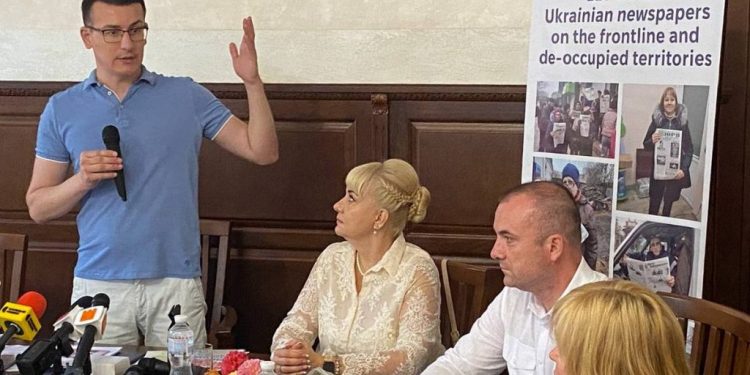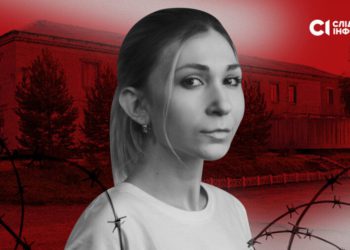In the first days of the temporary occupation of the Ukrainian territories, a campaign of pressure on journalists began there, demanding that they either become local propagandists for the occupiers or stop publishing their newspapers. The invaders understand: uncontrolled media is a threat to their aggressive policy.
The President of NUJU, Sergiy Tomilenko, stated this while presenting the NUJU‘s project titled Executed Free Speech.
Within the framework of the project, over 100 text and video stories about journalists affected as a result of russian aggression have been prepared.
“Our key task during the collection of these testimonies was justice,” Sergiy Tomilenko stressed. “We support every journalist whose fate is destroyed by the occupier, we try to help, and at the same time, we document these crimes against freedom of speech and transfer this data to the human rights initiative Tribunal for Putin, the International and European Federation of Journalists, and other international institutions.”

The President of the NUJU emphasized that during the tribunal, which will try russian war criminals, a separate section should be created for those responsible for war crimes against journalists and the media. When it comes to the most tragic pages in the modern history of the Ukrainian media, the Union constantly recalls that large-scale russian aggression has already taken the lives of over 70 Ukrainian media workers. Fifteen journalists were killed while performing their professional duties, and the rest became civilian victims of the russian military or mobilized in the Armed Forces of Ukraine (AFU) for the armed defense of the Motherland.

In addition to the military and officials, leading russian propagandists should sit in the box within the tribunal for putin and his regime.
“We show that the first stage of a great war is propaganda! It immerses the russian population in a toxic information bubble so much that it welcomes every missile that flies into peaceful cities,” said Sergiy Tomilenko.
An intermediate success of the NUJU in this struggle is the expulsion of the russian union of journalists, which formed its “branches” in the occupied Ukrainian regions, from the International Federation of Journalists. Accordingly, the journalistic status of russian propagandists is not recognized by the world community.

In addition to murders, illegal detentions, captures, torture, and pressure on media workers, the occupiers deliberately attack the editorial offices of Ukrainian mass media, destroy their property, and deprive journalists of the opportunity to perform their professional duties.
“But we admire journalists who were not broken by the war, not broken by trials!” said Sergiy Tomilenko, citing the example of the multimedia publication Obrii Iziumshchyny, which lost its newsroom premises and property during the occupation, but, despite these trials, continues to inform its audience through the Internet and social networks, and has resumed publication of a paper newspaper.”
Sergiy Tomilenko reminded that the NUJU actively supports the resumption of local press printing in the frontline and de-occupied territories, including the attraction of funds from foreign partners.
“We understand how important it is to provide verified information and support the Ukrainian information field there,” said the President of the NUJU.
He emphasized that the Union unites professional journalists devoted to their work and thus contrasts with the propagandists of the occupiers. He emphasized the importance of journalistic solidarity and mutual support, which the NUJU advocates under the slogan Journalists are important!

NUJU Information Service

 THE NATIONAL UNION OF
JOURNALISTS OF UKRAINE
THE NATIONAL UNION OF
JOURNALISTS OF UKRAINE
















Discussion about this post